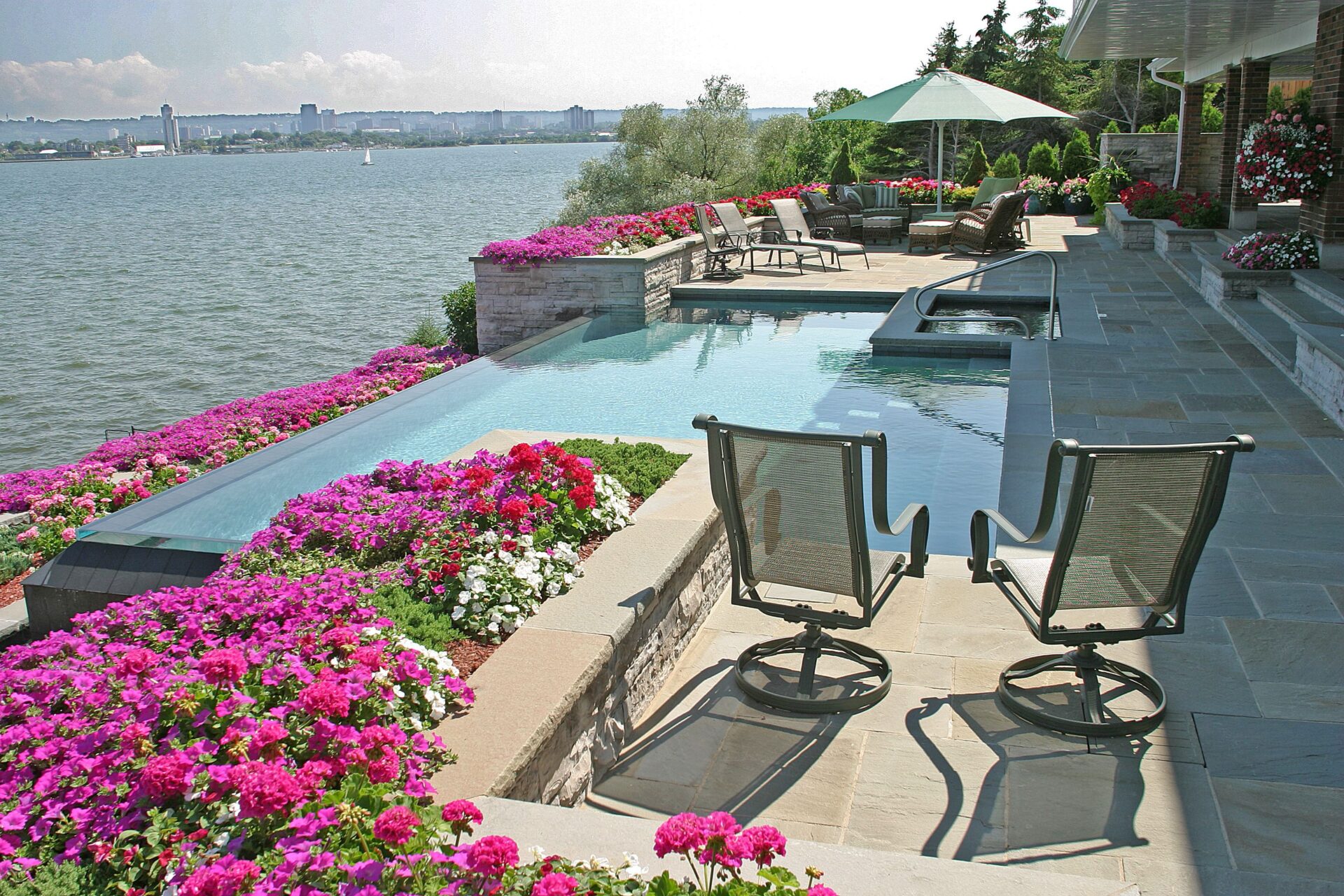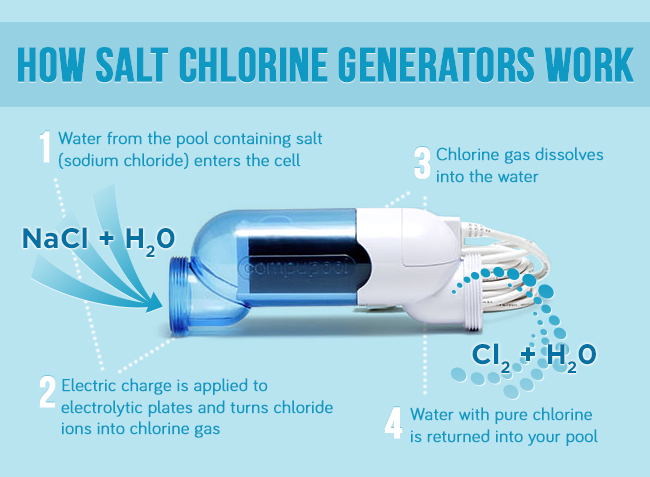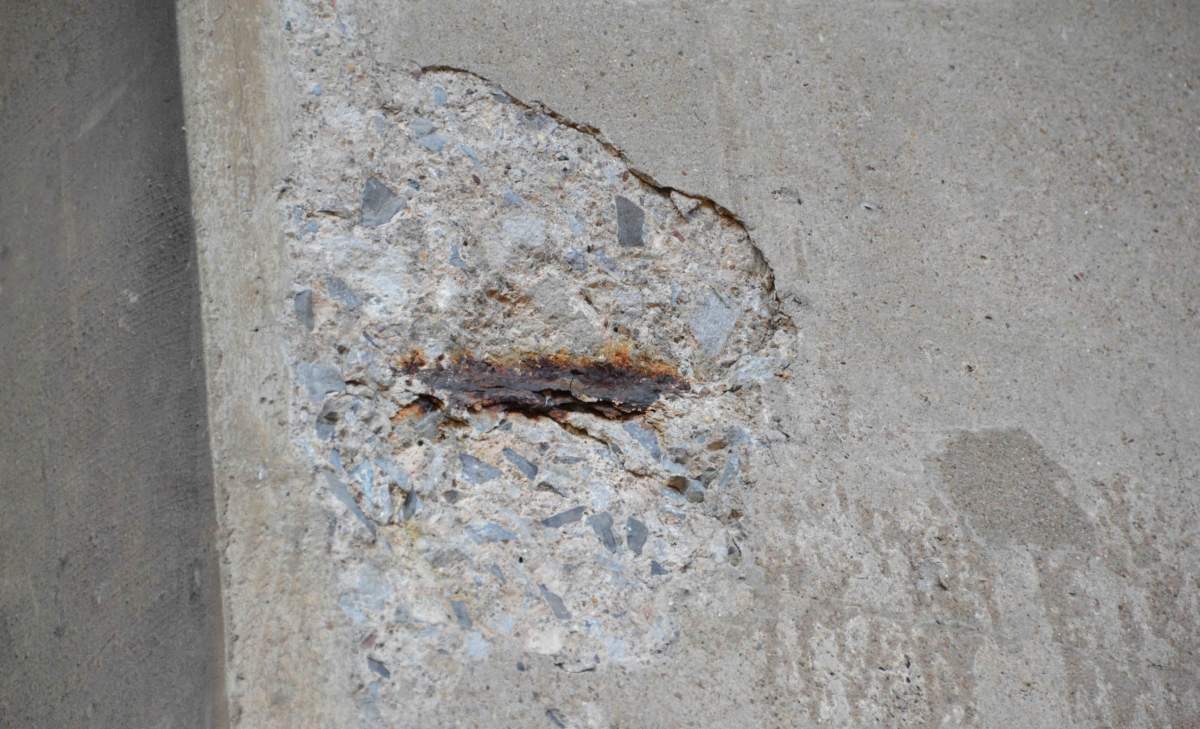Salt water systems – yes or no?

The quick answer
For this topic, there really is no quick answer, but for a simple summary consider the following:
Salt water systems for pools and spas are broadly misunderstood, sadly even within the industry, and the marketplace is full of misinformation.
Beware of claims that salt water pools are “natural” and free of chemicals. This is not true.
Beware of the promise that a salt water pool will require “less work.” It sounds great, but also is not true.
Anyone who is considering switching to a salt water system should read this article in its entirety and maybe even do additional research on their own before making a final decision.
Still here? Great! Read on for more information on salt water pool systems.
A common misconception
Many consumers think that salt water pools are sanitized with salt, avoiding having chlorine in the pool. This is untrue, both salt pools and conventional chlorine pools use chlorine as the sanitizer. In a salt system chlorine is generated when salt water passes through layers of electrically charged plates called a “salt cell.” Chlorinated water leaves the cell and returns to the pool where it reacts with bacteria, organic material and sunlight to sanitize the water. As the chlorine gets consumed in the process the by-product is salt, providing a closed self-recharging system. The salt only needs to be replenished occasionally due to loss from filter backwashing, dilution and splash out.

Diagram courtesy of PoolSupplyWorld.com
The full story from a trusted expert
To make this article as accurate as possible we sought input from someone we know to be knowledgeable on the subject, Dave Huxtable, President of Mursatt Chemicals (serving pool service professionals). Dave kindly provided an in-depth outline of the subject, which is briefly summarized here:
- Chlorine generation is not new―it has been done commercially since 1890. Salt systems have recently become popular in Canada, but have been in use in Australia for decades.
- No sanitization system is perfect and every swimming pool is different, so all factors must be taken into account before deciding on a system (water volume, temperature, bather load, circulation system, automatic pool cleaner, surrounding vegetation, pets, pool construction and shape, wind and sunshine vs. shade).
- The main benefit of salt is that the chlorine generator is constantly generating chlorine so the pool is always sanitized. You no longer need chlorine sticks or pucks and you eliminate the weekly shock treatment. However, periodic shock treatments are required after a heavy bather load or storm.
- The type of chlorine produced by a salt cell is exactly the same as from conventional chlorine sticks, pucks, shock or liquid chlorine―none is more “natural.”
- “The water feels softer on my skin” is a perceived notion. The process for a chlorine generator is different from the process for a water softener―the water in a salt pool is not softer.
- “The water does not hurt my eyes.” There are two reasons for this. First, the salt level in a salt pool is closer to the natural salinity of your eyes. Second, salt pools that are properly balanced are less likely to have “combined chlorines” which can occur in conventional chlorine pools that are dirty and overdue for shocking (combined chlorines have a heavy chlorine smell and irritate the eyes). Proper maintenance avoids this problem.
- “A salt pool is not more environmentally friendly.” The problem is disposal of the salt water from the pool―from regular maintenance (backwashing), winter drawdown and periodic emptying of the pool. The City of Toronto has banned the discharge of salt water to the storm sewer system, with up to a $50,000 fine. Several other municipalities are adopting this by-law.
- “Salt pools require greater attention to water balance.” Salt cell chlorine generators increase the pH as they produce chlorine, so they have a tendency to go out of balance more than chlorine pools. To avoid the risk of costly damage to equipment caused by corrosion and scaling, the pH must be monitored and adjusted regularly.
- “There is no cost saving using a chlorine generator.” You no longer need to purchase a sanitizer or shock treatment. You do need to purchase all other chemicals to keep the pool properly balanced and maintained. So you are comparing the cost of a new generator ($1,500 to $3,000) versus your current sanitation system only. Every four to five years you will need to replace the cell that generates the chlorine at a cost of $700 to $1,000.
- There are other factors you should consider when determining if a chlorine generator is right for you:
- Materials compatibility: Salt by itself is not corrosive. When you add salt to water you produce a chloride ion. This chloride ion can be quite aggressive with certain materials.
- Stainless Steel: Lower grades of stainless steel (e.g., some pool ladders) will suffer pitting corrosion. A chlorine generator is not recommended if you have a stainless steel filter.
- Aluminum will corrode rapidly. That’s why you don’t see aluminum eavestroughs near an ocean coast.
- Aluminum coping will pit and corrode very quickly.
- Steel: The chloride ion will find its way through concrete to corrode structural reinforced steel. Look under the Gardiner Expressway in Toronto or the concrete bridges in Montreal.

Photo of Niagara area bridge corrosion courtesy of Wikipedia
- Rocks and stone work: Only select very hard materials with low moisture absorption rates. When salt penetrates into the rock the water evaporates and salt crystals are left behind. As they accumulate they expand and pieces of rock eventually pop off.
- Galvanic corrosion: Adding salt to water increases the rate of galvanic corrosion on equipment and fixtures. In a swimming pool environment this can become quite significant. This can be avoided or controlled by having the pool properly bonded during construction.
- Erosion may remove surface deposits exposing fresh metal to corrode. This is a concern for heaters or heat exchangers with copper anywhere.
- Evaporation and water features: Many pools have spill over spas, sheer descent waterfalls, vanishing edges and waterfall rock formations. As the water flows over there is some evaporation and solids in the water are left to accumulate. Adding salt to the water increases the amount of solids left behind. These buildups are difficult to remove and detract from the look of the water feature.
Summary
Chlorine generators are an effective daily sanitizer. Before purchasing a salt system consumers should carefully consider the unique aspects of their pool and its compatibility with salt. They must also consider how they are going to dispose of the salt water in an environmentally friendly way. For more details read Dave Huxtable’s full in-depth article.
Salt systems have been in use for decades in Australia
To ensure an accurate and balanced understanding of the subject, we interviewed Peter Moore, a leading expert from Australia. Mr. Moore, a structural engineer, is founder and principal of Sunrise Pools near Sydney, NSW. With over 40 years in the industry he has been active for many years with the SPASA (Swimming Pool and Spa Alliance) and served as its President from 2009-2013.
Peter says that although salt water pools have been in use since the 1960s, he now sees the trend coming back to chlorine. He estimates the Australian market is currently split about 50/50, but in his company salt systems account for only about 20 per cent of sales.
He feels that one of the big problems over the years is that enthusiastic salt system manufacturers have promoted the idea that salt pools are somehow more natural and require less maintenance. Both of these claims are untrue, salt and chlorine systems both sanitize with chlorine, and salt pools require the same if not more maintenance.
Another drawback with salt is when problems do occur they often don’t show up for a few years, but by then they are either very costly to correct or entirely irreversible. For example, salt staining on water features, corrosion of mortar between coping stones, degradation of equipment, or even worse for pools that were not built for salt, the corrosion of the soft sandstone coping itself.
In spite of this he says salt is not a disaster, but salt pools do require more attention to maintenance. He feels the biggest problem with all swimming pools, chlorine or salt, is maintaining proper water balance―pH is the key. Chlorine systems can be equipped with automated controllers, but for salt pools these have not yet become widely available. Once the water in a salt system gets out of balance it can do much more damage, much more quickly.
Peter says in his company they promote chlorine pools as their premium product, especially ones with sophisticated water balance controllers, and salt systems are offered as a lower cost alternative. They always remind buyers of salt systems about the additional cost of salt cell cleaning and complete cell replacement about every five to seven years.
How salt causes weathering in nature
Here is a quote from Planet Geography by Stephen Codrington:
(Excerpt from Chapter 11: Lithospheric Process and Hazards – Salt Weathering, pg. 294)
“Salts that have seeped into rock in solutions form crystals in small pores and cracks when the water evaporates. As this happens, crystals of salt form, and as the crystals grow, they expand and fracture the rock. Fracturing of rock can also result from salt hydration, which occurs when moisture is absorbed by salt crystals, causing them to expand and fracture weaker rocks.”
What does Betz Pools say about salt?
Although it has been very tempting to jump onto the salt bandwagon, significant profits can be made, Betz has remained cautious having learned from seventy years in the business that all new trends must first pass the test of time. In the words of Marvin Betz, “A few years ago we heard of some concerns coming out of Australia so decided to wait. Now we are glad we did. Someday we may offer salt systems, but not until we are convinced beyond doubt they are the best solution for our customer. In the meantime, we do install salt if a customer insists on it, but we don’t recommend it. We feel it our duty to protect our customer’s significant investment by only promoting systems that have proven reliable and cost effective over time.”
Here is a video produced by the Betz Service Dept. which will be helpful to pool owners with salt systems.

Dave Clark – Marketing Communications
Betz Pools
Want even more information on salt water pools? Feel free to get in touch.
Surfing the Internet is a good start. But your single most important step for pool information is to contact a certified pool professional to make sure you get the custom advice you need.
We’d love to hear from you! Connect with us on Facebook, Twitter, Houzz, YouTube and Pinterest.
